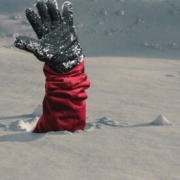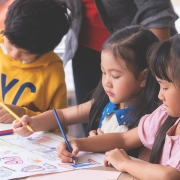Why Are Experts So Often Wrong? Because They Can’t See Out Of Their Silos.
When the coronavirus first began showing up in America in February 2020, both President Trump and Dr. Anthony Fauci, head of the National Institute for Allergy and Infectious Diseases, were arguing that the average citizen of the United States did not need to worry and that wearing masks wouldn’t do much to prevent one from getting or spreading the virus.
Shortly thereafter, the President invoked the Defense Production Act of 1950 to compel domestic companies to prioritize government Personal Protective Equipment (PPE) orders. FEMA and other federal agencies began seizing PPE stockpiles and redistributing them.
Taken independently, these actions seem contradictory; the federal government was simultaneously saying PPE wasn’t necessary for the virus and yet were taking steps to hoard the equipment.
Recently, both Trump and Fauci have attempted to address this seeming contradiction. They acknowledge that the virus was actually more deadly than they initially let on and the downplaying was done to prevent panic among the American people and ensure that necessary PPE could get to the hospitals rather than end up solely in private hands.
Let us take this explanation as correct: Trump and Fauci’s actions were motivated entirely by public concern. Let us assume there is no malice, self-interest, ignorance, or politics involved in their February actions. (As the reader will note, weakening these assumptions does not undermine the conclusions drawn in this article. If anything, it strengthens them.)
Trump and Fauci’s actions have failed to achieve their intended goals. Here we are, 7 months into the pandemic and 6 months into the federal government essentially taking control of PPE production in the US, and the equipment remains in short supply. Panic did indeed set in, with state and local governments acting in an unprecedented, destructive, and arbitrary manner. Second waves across Europe, spikes in schools, and fears of “super seeding” events continue to spread fears.
Why did the experts fail so badly, not just in the US but across the world?
Experts are just like us. They are experts in their specific fields, but not beyond them. The problem with a pandemic is that it is not simply a medical phenomenon. There are economic issues at play, political issues at play, mental health issues, educational issues, etc. Dr. Fauci may be a brilliant immunologist, but he is no economist.
Trump may be a civic-minded public servant, but he is no logistical expert. In other words, these experts fall into a problem that Roger Koppl calls “siloing.” These experts make decisions based upon their understanding, training, and knowledge. They do not necessarily know (or even know to consider) how their actions affect other elements of society.
From a political perspective, the February actions of Trump and Fauci may make sense. Containing panic may be wise during a pandemic, and the “noble lie” may be worthwhile. But, from an economic perspective, their behavior was foolish. Ultimately, the question of PPE production and distribution is an economic one. Economics is, partially, the study of the allocation of scarce resources to desired ends, according to early 20th century economist Lord Robbins. Economic theory gives us strong predictions about how the noble lie and subsequent seizure of PPE manufacturing would turn out: persistent shortages and hoarding by private citizens. Lo and behold, those predictions came true.
The expert failure of the Federal Government’s various agencies has a dynamic effect as well. Because they did not understand why they had failed, the experts began to rely on more and more regulatory solutions to the problems they faced. The noble lie that masks were not necessary was told in February.
By March, the fact that was a lie was quite obvious and people began stocking up on equipment and cleaning supplies. In order to make sure enough was available to hospitals, the federal government invoked the Defense Production Act, which capped prices and forced firms to prioritize federal contracts.
Firms, now facing rising costs and increasing demand for their products, could not raise prices to the federal government. They attempted to raise prices for private consumers. However, state and local governments began to impose anti-price gouging legislation to prevent price increases of PPE, toilet paper, paper towels, and other necessities.
Without rising prices to encourage conservation and search for alternative means to protect one’s self (e.g., cloth masks versus N95, staying at home, voluntary social distancing, etc), consumers continued to engage in risky behavior and search for PPE. As the shortages began to manifest, consumers started to panic (a panic which was fueled by media coverage of mass graves and overwhelmed hospitals).
This panic, in turn, led to various “shelter-at-home” orders, more price controls, and the disastrous lockdowns. But prices were still not able to rise (again, discouraging increased production and conservation) and the shortage persisted.
As the virus continued to spread, more and more draconian measures were imposed, both by the government and through intense (and Orwellian) social pressures. People were made to feel guilty about basic human desires for social contact. Feelings of claustrophobia from being cooped up in the house were dismissed as antisocial.
Predictably, however, the shortage persisted, leading to justification of more and more draconian measures. The experts continued to fail and they could not figure out why. As each day passed, more and more measures were imposed. The avalanche may have started small, with a single noble lie to contain panic, but the resulting destruction will be discussed and analyzed for years to come.
There is a tendency to analyze events as though they incur in a vacuum (this tendency is especially true in conversations among economists in regard to externalities, but that is a discussion for another time). But actions and events are not independent of one another; they are quite interlinked.
One of the advantages of liberalism (that is: the idea that people, except in rare cases, should generally be allowed to make their own decisions; that they should be protected from other people, including government, messing with their stuff) is that it prevents the cascading expert failure we’ve seen here in 2020.
When there is a multiplicity of plans, as opposed to a single, overarching plan, various failures can be canceled out and people can react to one another. As we have seen, when the feedback mechanism of personal interaction is overruled by a grand scheme, even if it is noble and (seemingly) virtuous, there can be strong negative results that cause the central planner to double, triple, or quadruple down on his failed scheme, resulting in even more problems.
Of course, if the experts are vicious, if Trump was actually trying to sow the seeds of panic and Fauci was truly ignorant of the nature of the virus, then the need to prevent their overarching control on our lives becomes all the greater.





